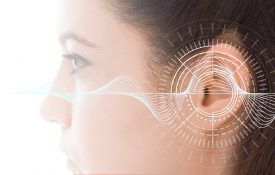-
How To Recognize And Overcome Your Biases
Almost every day, there's at least one story in the news that involves racism, sexism or another kind of bigotry. But when you hear those stories, do you think, "Well, that's not me"? Turns out, even among the best-intentioned people, unconscious biases can exist. So how can we identify these biases, and is it possible to overcome them? "You can learn to address them — I'm not sure you unlearn them," Patricia Devine (@DevineLab), professor of psychology at the University of Wisconsin Madison, tells Here & Now's Jeremy Hobson. Part of the reason why is because biases are learned at a young age, Devine says.
-

New Research From Psychological Science
A sample of research exploring certainty in advice giving, boundary conditions for growth mindset effects, polygenic scores and criminal offending, and strategic modulation of mind wandering.
-

Imagining an Object Can Change How We Hear Sounds Later
Research shows that you don’t need to see an actual object to experience the “ventriloquist illusion” and its aftereffect. Simply imagining the object produces the same illusory results.
-

Recruiters Change Interview Questions Based on Applicant’s Ethnicity, Researchers Find
Professional recruiters drew up more questions about culture and group compatibility when they prepared to interview applicants with Arabic-sounding names
-
People can’t be educated into vaccinations, but behavioral nudges help, study finds
Vaccines were one of the great inventions of modern history. They helped stop America's polio epidemic in the 1950s. And yet many people are reluctant to get their shots or vaccinate their children. A study published Wednesday concludes that using education campaigns, and simply trying to persuade people to get the shots, is far less effective than using indirect behavioral nudges. The reason most people don't get vaccinations for themselves or their children, the study found, isn't because they need convincing but because they perceive inconveniences or obstacles.
-
Are We Already Living in Virtual Reality?
Thomas Metzinger had his first out-of-body experience when he was nineteen. He was on a ten-week meditation retreat in the Westerwald, a mountainous area near his home, in Frankfurt. After a long day of yoga and meditation, he had a slice of cake and fell asleep. Then he awoke, feeling an itch on his back. He tried to scratch it, but couldn’t—his arm seemed paralyzed. He tried to force the arm to move, and, somehow, this shifted him up and out of his body, so that he seemed to be floating above himself. Gazing out into the room, he was both amazed and afraid. He heard someone else breathing and, in a panic, looked around for an intruder.

